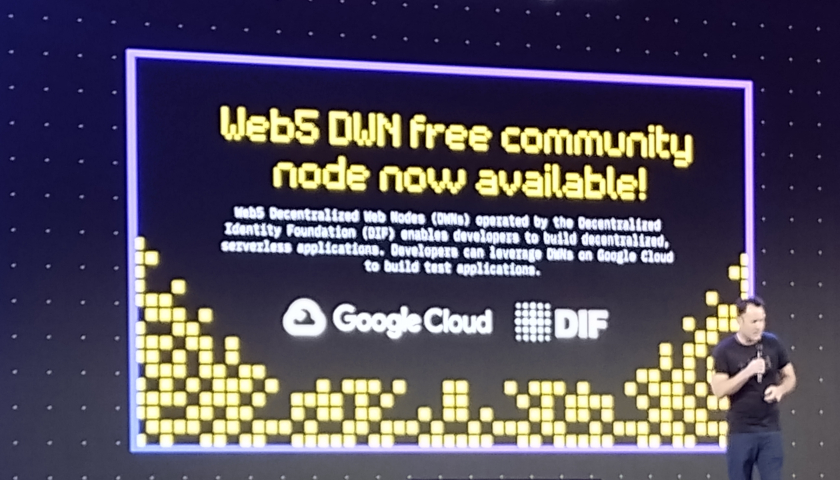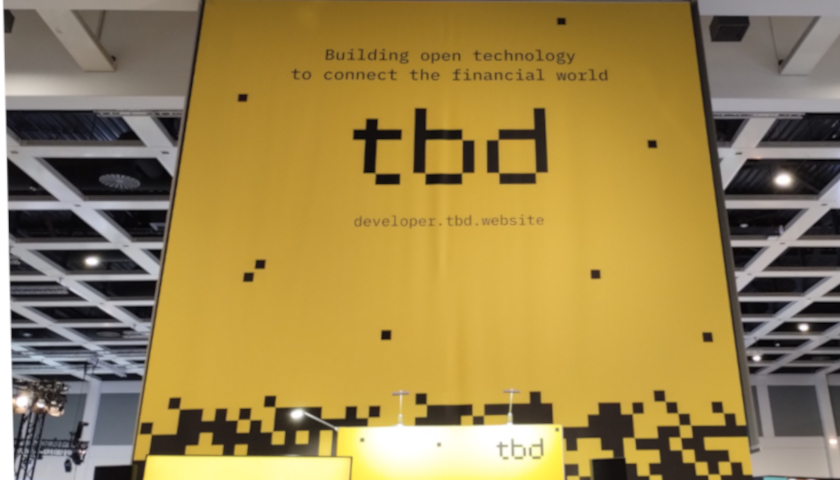Block, a California-based FinTech provider, announced Managed Web5 Decentralized Web Nodes at the WeAreDevelopers World Congress. Powered by the Decentralized Identity Foundation (DIF), Web5 Decentralized Web Nodes (DWNs) enable developers to create decentralized, serverless applications.
Managed Web5 Decentralized Web Nodes Now Available
Web5 Decentralized Web Nodes (DWNs) operated by the Decentralized Identity Foundation (DIF) enables developers to build decentralized, serverless applications.
Web5 Decentralized Web Nodes (DWNs / DWeb Nodes) are now available in a managed service operated by DIF leveraging Google Cloud technology. DWNs are personal data stores that eliminate the need for individuals to trust apps to responsibly use and protect their data. Instead, data is owned and controlled by the individual. This offering, announced at the WeAreDevelopers World Congress in Berlin, will allow existing and new Google Cloud customers to more easily build test applications using Web5 DWNs. Rather than having to run their own DWN or server infrastructure to store data, developers will be able to leverage a DWN on Google Cloud to build test applications.
Web5 is an open source platform that provides a new, reliable identity and trust layer for the Web to enable decentralized applications and protocols that solve real problems for people. Built on open standards developed by the World Wide Web Consortium (W3C) and the Decentralized Identity Foundation (DIF), Web5 consists of three key pillars: Decentralized Identifiers (DIDs), Verifiable Credentials (VCs), and Decentralized Web Nodes (DWNs/ DWeb Nodes).
Web5 Decentralized Web Nodes (DWNs)
DWNs are personal data stores and peer-to-peer communication nodes that serve as the foundation for decentralized apps and protocols. They live on devices and can be replicated on hosted instances in the cloud. These data stores are a realization of true serverless applications in which developers can store app data without using centralized servers or an account with a centralized service. This empowers individuals to gain ownership and control of their data by hosting it themselves on DWNs, decoupled from apps that seek permission to read and access their data.

"Web5’s Decentralized Web Nodes are a paradigm shift in the way people, apps, and services exchange data with each other," said Daniel Buchner, Head of Decentralized Identity at TBD, part of Block, and one of the companies building the DWN specification within DIF. "In a Web5 world, consumers own and control their data, not centralized authorities, and can decide how it is stored, shared, and accessed - encrypted just for them, permissioned for a select group, or published to everyone. But to truly own all of your data, a personal data storage system is needed. Even if an individual chooses to host one of their DWeb Nodes with a provider, private data is encrypted, so it is only available to the individual and whoever they grant access to."
"DIF is thrilled to collaborate with TBD and Google Cloud to bring this groundbreaking initiative to life," said Kim Hamilton Duffy, Executive Director of the Decentralized Identity Foundation. "The DWN community node provides a quick start for developers to build products and services that provide individuals control of their data – by design. As consumers experience the 'a-ha' moment of applications offering unprecedented personalization, security, and trust, they will come to expect this new standard in all their digital interactions."
To start building decentralized apps on Web5, developers can visit developer.tbd.website (https://developer.tbd.website/).
TBD OSS community building on Web5
Web5 is a TBD open-source project (TBD OSS), designed to benefit the public. The community involved in this project is working together to develop applications using Web5's Decentralized Web Node (DWN) technology. This technology aims to give users control over their personal data while making it easier for developers to manage that data in their applications.

One of the TBD Open Source Community Incubation Projects leveraging Web5 DWN technology is Decentralized Credential Exchange (DCX), developed by FormFree to improve consumer lending by addressing long standing biases in lending. FormFree does so by issuing Verifiable Credentials (VCs) that indicate an applicant's ability to pay (ATP) indices in place of the status quo credit reporting system. DCX will use Web5 DWNs to manage reusable identities and ATP VCs that other participating financial institutions can leverage.
Companies and developers are invited to start building on Web5 and participate in the TBD OSS ecosystem.
Source: Block's Press release.



